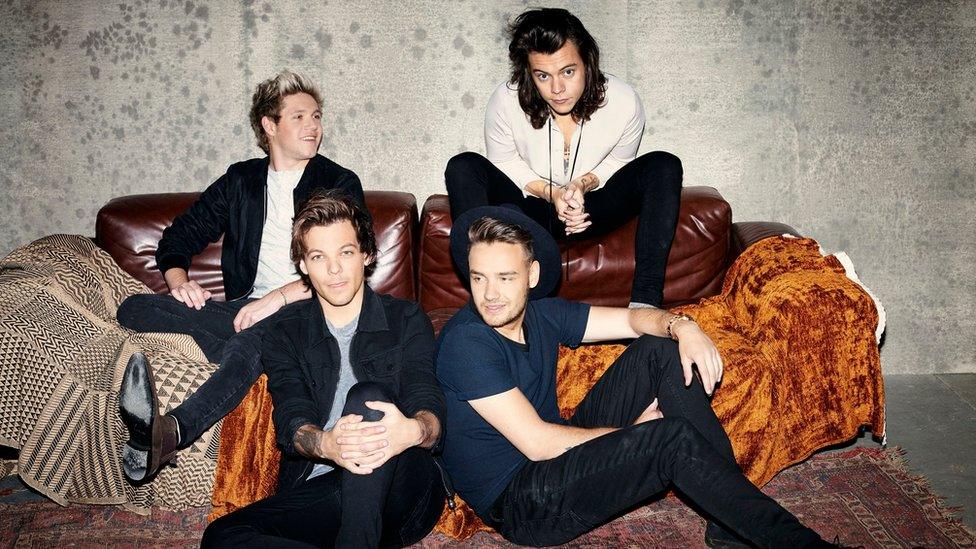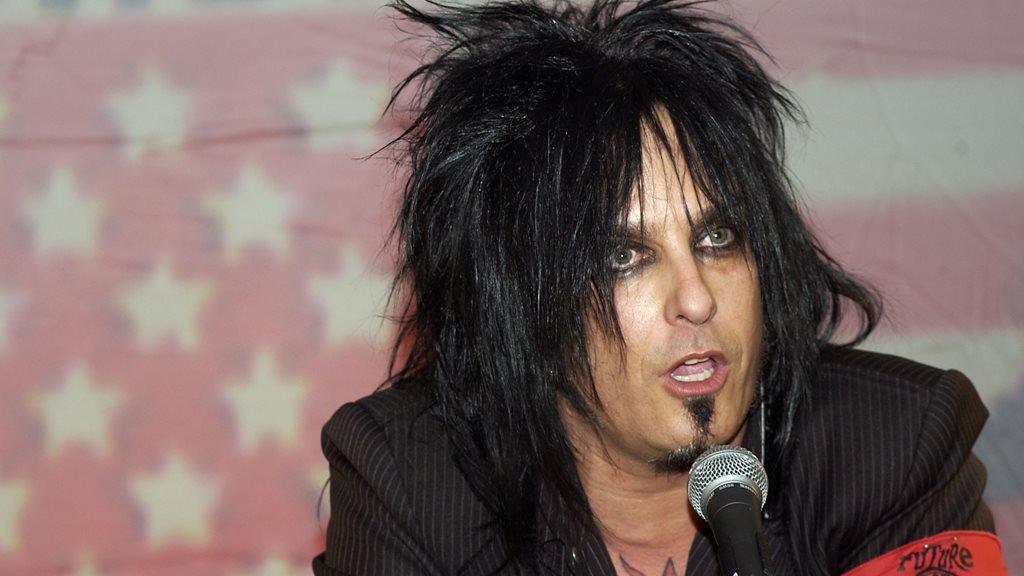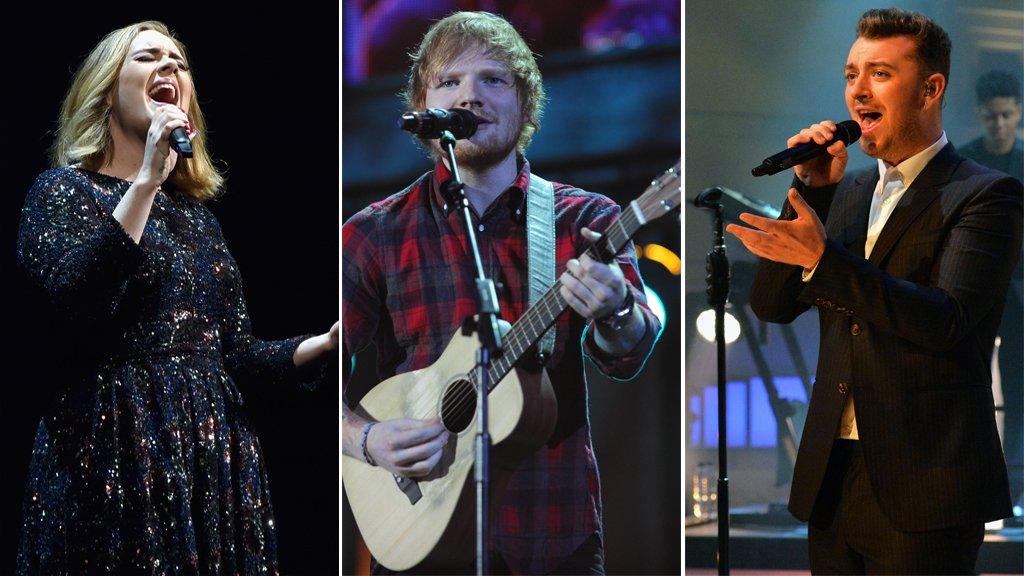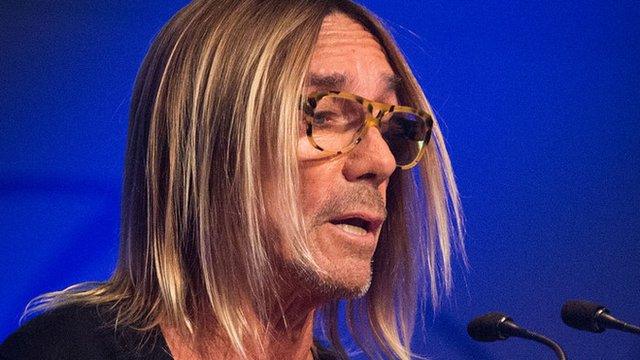One in six albums sold worldwide is by a UK star
- Published

One Direction were one of the biggest-selling acts in the world last year
The huge success of artists like One Direction and Adele means that British artists accounted for one in every six albums sold worldwide last year.
The UK music industry accounted for 17.1% of the global music market - its highest ever share.
Adele was the driving force, selling 17.4 million copies of her third album, 25, in just six weeks.
But despite the industry's impressive market share, total revenues fell by 1% to £688m.
Uneasy marriage of music and YouTube by BBC's Rory Cellan-Jones
The BPI, which represents the British music industry, laid the blame with advertising-funded sites like YouTube and Daily Motion, saying the industry made more money from vinyl sales last year than it did from music video streaming.
In its annual yearbook, a guide to the UK recorded music industry, the BPI said YouTube and other ad-funded websites paid out a "meagre" £24.4m in 2015. This was despite fans streaming almost 27 billion music videos - an 88% increase from 2014.
That was narrowly eclipsed by the £25.1m earned from the sale of 2.1 million vinyl LPs in 2015 (a figure that suggests the industry makes almost £12 from every vinyl album sold).
Audio streams on subscription services like Apple Music, Spotify and Deezer surpassed both. The BPI says it saw an 82% increase in streams, to 27bn, accounting for a 69% rise in income to £146.1m.
Geoff Taylor, chief executive of the BPI and the Brit Awards, said: "It is hugely encouraging that demand for British music is so strong [but] the fact that sales revenues dipped... shows clearly that something is fundamentally broken in the music market.
"In 2015, UK fans streamed almost twice as many music videos as the year before; tens of billions more views. Yet artists and labels did not benefit from the increased demand for what they created. This is wrong. Music is precious - it's not a commodity to be strip-mined for big data.
"The long-term consequences of this will be serious, reducing investment in new music, making it difficult for most artists to earn a living, and undermining the growth of more innovative services like Spotify and Apple Music that pay more fairly for the music they use."

Blondie star Debbie Harry has called on President Obama to close "safe harbour" loopholes that protect YouTube from some elements of copyright law
The music industry rhetoric around YouTube has been intensifying as the site's licensing agreements with the three major record labels - Sony, Warner and Universal - come up for renegotiation.
The industry is also pushing for reform to the "safe harbour" laws which allow YouTube and similar sites to claim some exemption from licensing laws when users upload videos featuring copyrighted content.
Artists including Debbie Harry, Katy Perry, Billy Joel and Radiohead have campaigned for the reforms, saying musicians ought to be paid fairly. In a blog for the Guardian,, external Harry wrote: "YouTube and Google are profiting from the law; the people who make the music are not."
A spokesperson for YouTube said: "For years, the music industry lost millions of dollars as piracy rates soared. Thanks to our rights management system, Content ID, rights holders have complete control of their music on YouTube and can easily decide whether to have content taken down, or profit from it.
"Today, revenue from Content ID represents 50% of what we pay out annually. In fact, ad-supported music streaming enables revenue from an audience that has never before paid for music. As more advertising money comes online, this will grow to match consumption. Comparisons to other audio-only, subscription music services are apples to oranges."

- Published25 April 2016

- Published12 April 2016

- Published14 October 2014

- Published18 April 2016
